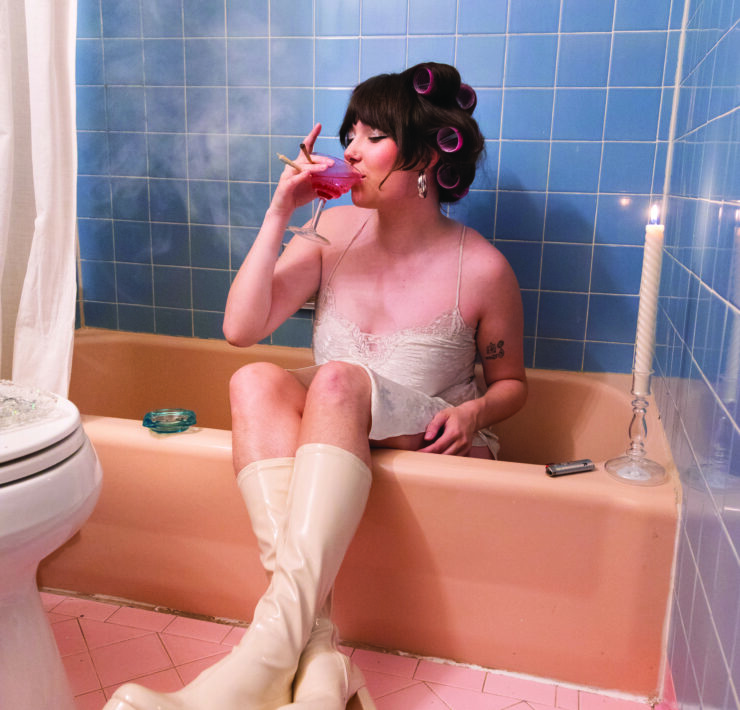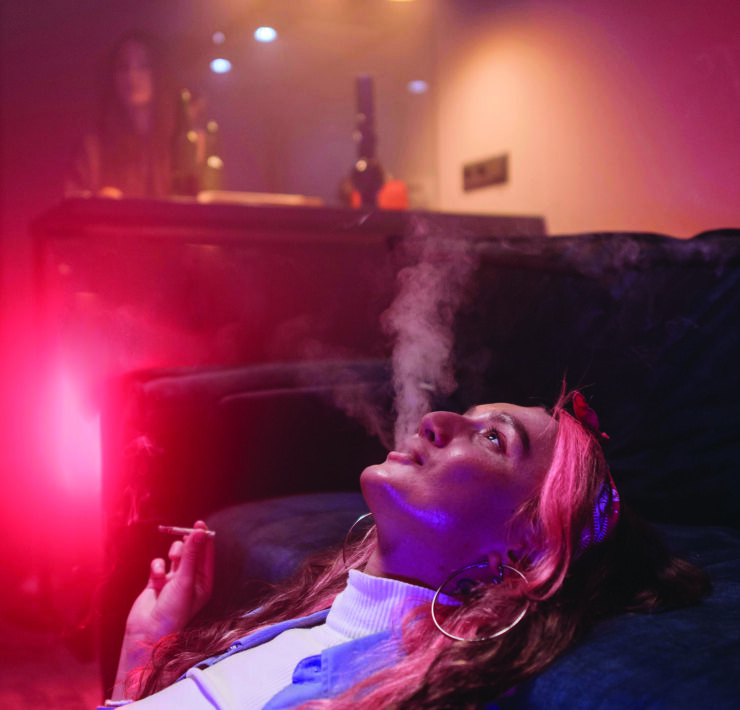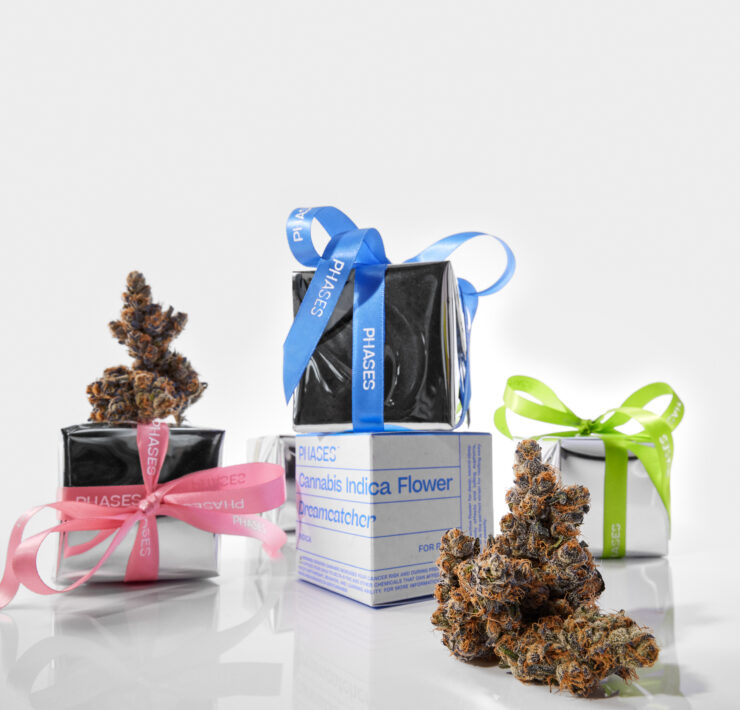Hashing Out Racial Disparities in the Legal Cannabis Industry

The legal cannabis industry is an intrinsically prejudiced industry in which people of color are unfairly barred from positions of power and influence. There’s a false narrative, bolstered in part by the country’s shifting attitude toward cannabis, that legality has led to inclusivity.
In reality, the legal industry has tied itself closely to the U.S’ foregoing and biased perception of black and brown people and cannabis. New Frontier Data, a research company that analyzes the cannabis industry, predicted the legal cannabis market to grow to $24.1 billion by 2025 and employ as many as 300,000 people by 2020.
Marijuana Business Daily found that white people own 81 percent of legal cannabis companies. Access to capital and a biased legal system have left those most harmed by cannabis criminalization behind. To combat this exclusion, folks are earnestly using diverse models of education.
NPR’s Code Switch podcast recently dug into America’s history with race and cannabis criminalization and found it dated back much further than Richard Nixon’s war on drugs. After the Spanish-American war, Mexican migration to the United States increased. A rise in the fear of immigrants followed and was fed by the government and media’s vilification of cannabis.
Harry J. Anslinger was a major proponent in this vilification and served in the U.S. government for 31 years, helping tie crime and terror to cannabis, immigrants, and the black community. Finally, cannabis was further criminalized in the 70s by Nixon and his Schedule 1 determination.
Recently, the ACLU found that between 2001 and 2010, there were 8 million cannabis arrests in the U.S., and even though black people and white people use cannabis at the same rate, black people are over three times as likely to be arrested for possession. In 2017, cannabis convictions made up more arrests than all violent crimes combined.

Leafly’s online article, “Can You Get a Cannabis Business License if You’re a Convicted Felon?” explained how a past conviction affects your chance of entering the cannabis industry. “The rule is 10 years,’’ the article explained. “When you’re applying [to enter the cannabis industry], you have to report any past convictions. A felony conviction is worth 12 points; a misdemeanor is worth three points, and anything over eight points gets you automatically disqualified.”
Despite cannabis’ federally illegal status, only four states have not legalized the drug on the state level either medically or recreationally. All over the country, cannabis business is booming, and some cities have implemented equity programs to help balance the playing field.
In 2017, the City of Oakland launched its Cannabis Permit Application Process. Interested candidates were required to be Oakland residents with scarce annual income, less than 80 percent of the city’s medium income, and have been affected by the criminalization of marijuana through conviction or zip code/police arrests.
The program has come under criticism for partnering an applicant with a white-owned cannabis chain from Seattle. In February, NPR reported that the Social Equity Program developed in Massachusetts, with similar qualifications to that of Oakland, had ultimately failed, with next to no black or Latino candidates applying for licenses. These failures are thought to be due to fear of government and police and lack of resources and money.
“We’re seeing licensing inequities in every state, which is why every state is in the process of being sued or has been sued over their licensing practices. We need to remove the systemic racism that exists throughout the licensing and the regulatory framework on the state level,” said Wanda James, co-owner and COO of Simply Pure Dispensary in Denver.
Instead of remaining beholden to the norms of the cannabis industry, James and her husband and partner Scott Durrah use advocacy to connect with their customers and communities to change the industry from the inside out. James and Durrah are the first African Americans in the country legally licensed to own a dispensary, a cultivation facility, and an edibles company.
Using their know-how of the cannabis industry, legislation, and their consulting arm, The Cannabis Global Initiative, they will soon release the Cannabis Equity Initiative, which will work with larger companies and states in redefining how licensing works and how companies can “diversify on the board level, in their c-suites, and in their mid-management.”
Another example of someone making a big difference for people of color in the industry is Ru Johnson. Before Johnson moved to Washington D.C. to work with the National Cannabis Festival, she was living in Denver and was both a consumer of cannabis and someone who professionally connected cannabis businesses to nightlife and the local music scene. Working in the industry at such a pivotal time has allowed her to apply that knowledge to her sponsor and exhibitor team, creating digital marketing content for brands and sponsors that work with the festival.

The festival day consists of live performances, “munchies stations,” contests, and education. The day before the festival is the policy summit. The summit is free and open to the public and brings together a diverse group of speakers—activists, politicians, and leaders in business and beyond—who will speak about cannabis policy.
This year’s agenda will include topics like the role of journalists in reversing the narrative of the war on drugs, whether or not cannabis is an industry that can help victims of the war on drugs, and whether or not the path to federal legislation can inform state law.
“Not everyone is a policy nerd. I think the National Cannabis Festival is pairing music and art and activism in a way that brings an entirely different group of people into the conversation. That is going to be what changes the landscape of recreational consumption in this country,” Johnson said.
Today, the country is reckoning with what it means to include black and brown people in an industry that has essentially been built to criminalize them. On April 2, Colorado cleared a bill in the first committee that eliminates felonies for drug possession. Rep. Leslie Herod and Rep. Shane Sandridge sponsored HB 19-1263, which lowers the penalty for drug possession from a level 4 drug felony to a level 1 misdemeanor but will not change punishments when intent to distribute is involved. Presidential candidate Cory Booker is very vocal about legalizing cannabis federally and offering reparations in the form of record-expunging to those hurt by the criminalization of cannabis
Still, the legality of cannabis in most of the country proves that legality alone will not fix the disparities in the industry.
When done right, policy summits and even university courses can tell people that they’re not only welcome in the industry but are valuable assets.
“If I, as someone who works in the industry, feels impacted and finds that information is a challenge, I know that many others who were directly impacted by the war on drugs have no place to start,” Johnson said. “We have a little bit of a disadvantage, because we have to start with education. We have to start with our communities believing that we deserve to be in these spaces and that cannabis is something that is bringing generational wealth for the communities that we live in.”
Photo by Glenn Ross










